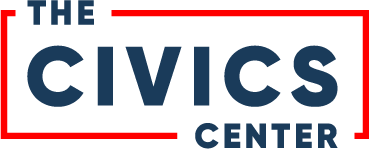It’s been 10 years since SCOTUS’s Shelby County decision undoing preclearance. So what’s preclearance?
Today marks the 10-year anniversary of the U.S. Supreme Court’s decision in Shelby County v. Holder, a decision that upended the 1965 Voting Rights Act (VRA). The signature voting rights legislation of the 20th century was enacted after decades of struggle; its central purpose was and is to end racial discrimination in voting, regardless of its form.
Section 5 of the VRA contained a “preclearance” system. It applied only to jurisdictions with a history of discrimination, and required them to “preclear” changes to their voting laws with the U.S. Department of Justice, which is tasked with ensuring that these laws will not make it harder for racial minorities to vote.
Preclearance is important because once an election occurs under discriminatory laws, the harm is immediate in giving power, plus the status of incumbency, to whoever is elected. This harm is difficult and expensive to undo after the fact.
In 2006, Congress expressly found an ongoing need for preclearance in light of extensive “[e]vidence of continued discrimination” and that “without the continuation of the Voting Rights Act of 1965 protections, racial and language minority citizens will be deprived of the opportunity to exercise their right to vote, or will have their votes diluted, undermining the significant gains made by minorities in the last 40 years.”
Shelby County, Alabama, however, did not want to submit its laws for preclearance. In 2013, its challenge argued that the system for deciding which jurisdictions would be subject to preclearance was outdated and therefore unconstitutional.
In a 5-4 decision, the Supreme Court agreed with Shelby County, striking down the method and making preclearance inoperable. The very discriminatory laws that Shelby County unleashed have made it harder for racial and ethnic minorities to gain the political power in Congress that is needed to (bring preclearance back).
Justice Ginsburg wrote a famous dissent in the case. She warned that “[t]hrowing out preclearance when it has worked and is continuing to work to stop discriminatory changes is like throwing away your umbrella in a rainstorm because you are not getting wet.”
Our umbrella was thrown out, and we are getting WET. The decision in Shelby County v. Holder has allowed states to enact nearly 100 new voter suppression laws in the last decade.
The best umbrella we have now is our own power and determination to register and vote and to speak out in favor of broader legal protection, despite the obstacles being thrown in our way.
Make sure everyone you know is registered. Hold a drive at your high school. Help us smooth the onramp to democracy for 18 year olds so that they're ready to make their voices heard as soon as they are able. Make voting a habit that lasts a lifetime.
Read about Why High School Voter Registration Matters and what you can do to help to bring voter registration to every high school in America.

